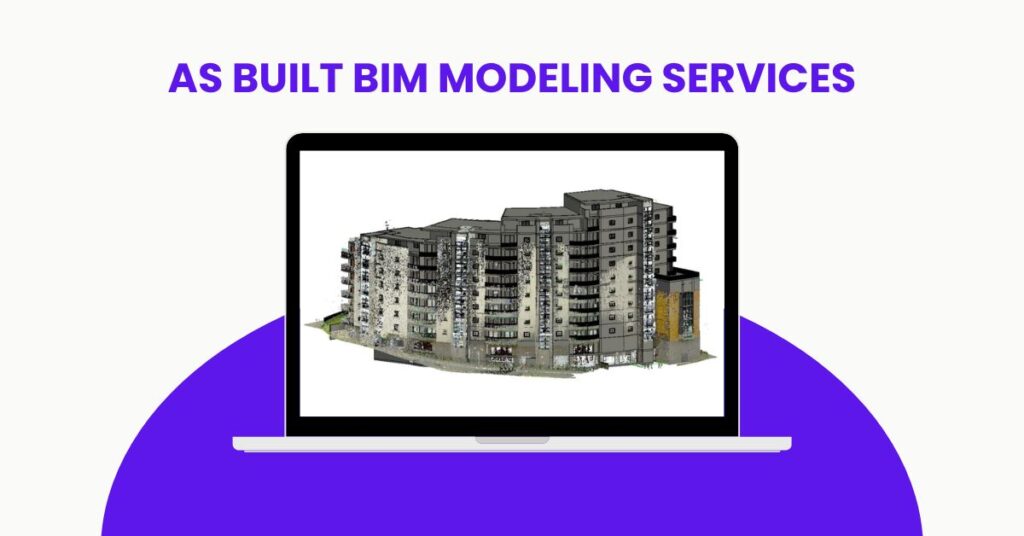
In today’s construction industry, As-Built BIM Modeling Services have become an essential part of ensuring precision, reducing rework, and improving facility management. These models reflect the actual built conditions of a structure, capturing every change or deviation that occurred during construction. Whether it’s for renovations, maintenance, or future expansions, having a reliable as-built BIM model ensures all stakeholders have access to accurate, real-time building data.
What Are As-Built BIM Models?
As-Built BIM Models represent the final state of a project, integrating all architectural, structural, and MEP elements as they exist after construction completion. Unlike design BIM models that are based on proposed plans, as-built models document what has actually been constructed, incorporating all field modifications, material changes, and site conditions.
These models are typically developed from laser-scanned point cloud data, redline markups, or field-verified measurements. The outcome is a detailed 3D model that serves as a digital twin of the built environment, offering valuable insights for ongoing operations and maintenance.
Why As-Built BIM Modeling Services Matter
Accuracy is key in any construction or renovation project. Even minor deviations between design intent and actual construction can lead to costly errors later. As-Built BIM Modeling Services bridge this gap by delivering a digital record that reflects reality, not just design.
Here’s why they matter:
-
Accurate Documentation – As-built models capture every element as it exists on site, providing a true representation of the finished project.
-
Enhanced Facility Management – Facility owners can use as-built BIM data to plan maintenance, manage assets, and track building performance efficiently.
-
Streamlined Renovations and Retrofits – Renovation projects become smoother with an accurate base model, minimizing conflicts and design assumptions.
-
Improved Collaboration – As-built BIM fosters better communication among architects, engineers, contractors, and facility managers through shared, data-rich models.
-
Reduced Rework and Cost – By identifying inconsistencies early, as-built models help avoid rework and project delays.
How As-Built BIM Models Are Created
Creating a precise As-Built BIM Model involves several crucial steps, combining advanced technology and expert coordination. The process typically includes:
-
Data Collection through Laser Scanning:
The building or site is scanned using LiDAR or 3D laser scanners to generate a detailed point cloud that captures exact geometries and spatial data. -
Point Cloud to BIM Conversion:
The scanned data is imported into BIM software like Revit, where modelers accurately reconstruct architectural, structural, and MEP components. -
Quality Checks and Coordination:
The model undergoes rigorous checks to ensure that all elements match the field data and meet the required accuracy levels. -
Final Delivery and Integration:
The completed As-Built BIM model is delivered in the required formats and integrated into the client’s facility management or asset management systems.
Also read: Scan to BIM Services NYC
Applications of As-Built BIM Modeling Services
As-Built BIM Models are versatile tools used across various stages and sectors in the AEC industry. Some common applications include:
-
Facility Management: For long-term building operation and maintenance, helping facility managers access precise data about systems and components.
-
Renovation and Retrofit Projects: For planning modifications or expansions without risking clashes or design errors.
-
Historic Building Documentation: Capturing and preserving heritage structures through accurate digital models.
-
Construction Verification: Ensuring that construction aligns with design intent and identifying any field deviations early.
-
Infrastructure Projects: Used in roads, bridges, airports, and industrial facilities to maintain an accurate digital representation of assets.
Benefits of Outsourcing As-Built BIM Modeling
Many firms choose to outsource As-Built BIM Modeling Services to specialized BIM service providers due to their expertise, tools, and efficient delivery. The key benefits include:
-
Access to Skilled Professionals: Experienced BIM modelers ensure high accuracy and quality.
-
Cost Efficiency: Outsourcing eliminates the need for expensive in-house resources and software investments.
-
Faster Turnaround: Dedicated teams deliver models quickly, enabling faster decision-making.
-
Advanced Technology Integration: Service providers use the latest scanning and modeling tools for maximum precision.
Outsourcing also ensures that clients receive standardized and clash-free models compatible with multiple platforms, improving coordination across project teams.
Choosing the Right As-Built BIM Service Provider
Selecting the right partner for As-Built BIM Modeling Services can significantly impact your project outcomes. Consider the following when choosing a provider:
-
Proven experience in handling large and complex projects.
-
Expertise across architectural, structural, and MEP domains.
-
Ability to work with various data formats (point cloud, CAD, PDF, etc.).
-
Commitment to BIM standards like LOD (Level of Development) 300–500.
-
Strong quality control and review processes.
A reliable service provider ensures your as-built models are accurate, data-rich, and fully aligned with your operational needs.
Conclusion
In the era of digital construction, As-Built BIM Modeling Services have become indispensable for achieving accuracy, transparency, and efficiency. From construction validation to facility management, these models empower stakeholders with a complete digital representation of their built assets.
Whether you are managing a large commercial complex, a healthcare facility, or a residential development, investing in high-quality as-built BIM models ensures that your building data remains accurate, accessible, and future-ready.
With professional expertise and advanced technology, As-Built BIM Modeling Services pave the way for smarter construction and sustainable facility management.
To read more useful blogs, visit Wikinewsportal


